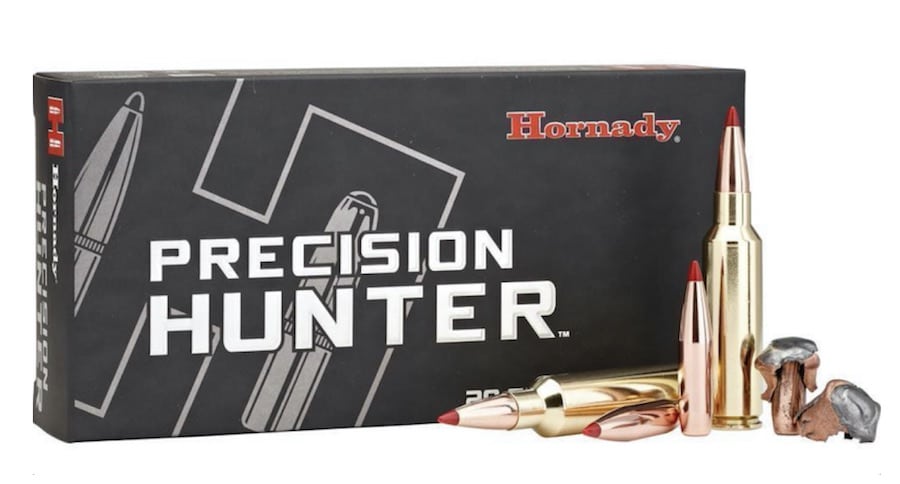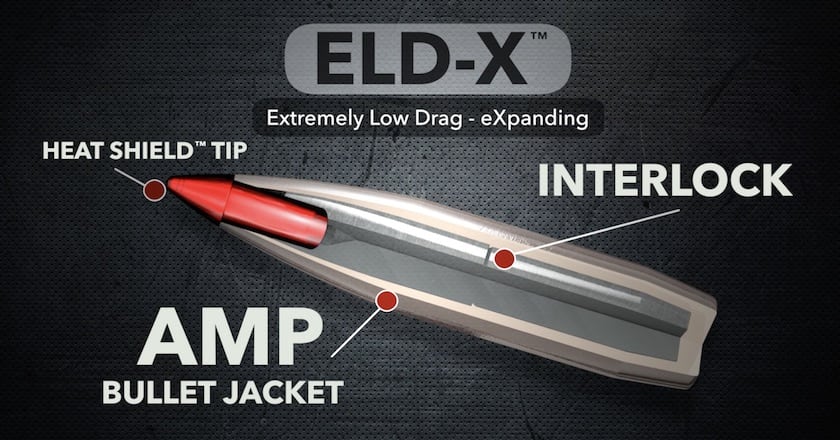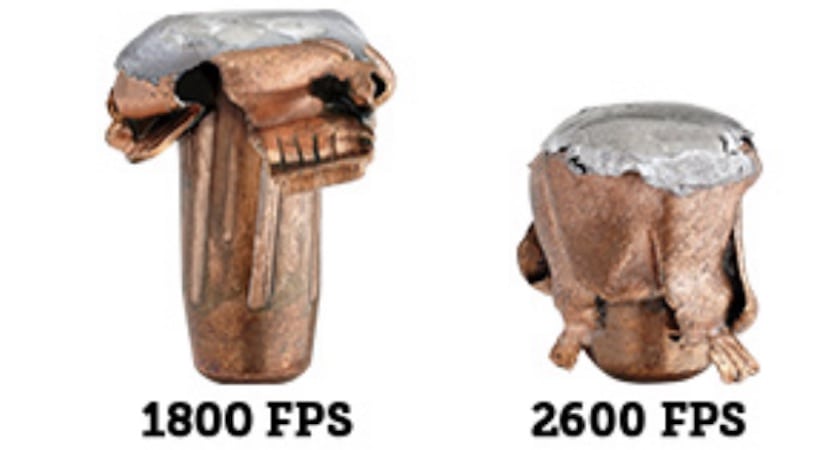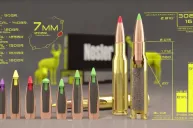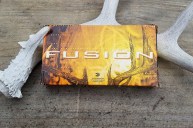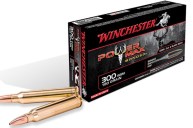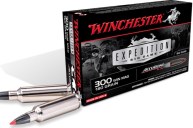The Hornady Precision Hunter line of ammunition is the first designed specifically to perform well during both long- and short-range hunting situations.
While it might seem like a relatively simple task, designing a bullet that consistently performs on big-game animals at both short range and long range is a lot tougher than it sounds. So how do you design a bullet that does well in both situations? Well, Hornady really devoted some serious brainpower to solving that problem with their Precision Hunter ammo.
As more and more hunters develop an interest in long-range hunting, the major ammo manufacturers have started to develop ammunition to serve this emerging market.
First, it must be accurate enough for the shooter to consistently hit the vitals of an animal at long ranges.
Second, the ammunition must deliver the terminal performance necessary to ethically harvest game at most common hunting ranges.
So, how did Hornady go about accomplishing those tasks?
During their initial testing, Hornady used Doppler radar to determine the ballistic coefficient of their bullets. They made a shocking discovery in the process, though: the ballistic coefficient of the bullet was actually changing during flight.
Since BC is a measure of how aerodynamic a bullet is, having one that significantly changes in-flight is very bad for accuracy at extended range.
After a bit more analysis, the engineers at Hornady realized the polymer tip on their bullet (and every other polymer-tipped bullet from various other manufacturers they tested) was melting and deforming due to the heat generated by the friction between the bullet and the air.
To solve that problem, the engineers at Hornady developed what they call a Heat Shield tip, which is much more resistant to aerodynamic heating and will retain its shape in flight. Further Doppler radar tests verified the Heat Shield tip was much more successful at retaining shape and consistently maintaining a high BC during the entire flight.
When all was said and done, Hornady used what they learned from those tests to develop two extremely accurate bullets. They were closely related, but each had a specific purpose.
The Extremely Low Drag Match (ELD Match) was optimal for target shooting and the Extremely Low Drag Expanding (ELD-X) was the better hunting bullet.
In addition to building a bullet with match-grade accuracy, Hornady built the to ELD-X to accomplish the second part of their goal. The wanted to make a bullet with effective terminal performance across a wide range of impact velocities. Believe it or not, that's actually quite a bit harder to accomplish than building a really accurate bullet.
For instance, a bullet optimized for best terminal performance on game at 500-600 yards must expand at a relatively low impact velocity. On the other hand, the bullet has to have solid-enough construction that it won't open up too rapidly and or come apart when impacting at a high velocity.
The ELD-X incorporates a number of features to ensure it has excellent short range, as well as extended-range terminal performance.
First, the bullet has what Hornady has dubbed an InterLock ring. It's basically a ring embedded in the bullet core that prevents the core and jacket from separating during expansion.
Second, it has a tough jacket. Both of these features help control the rate at which the bullet expands and prevent it from coming apart during the high-impact velocities common at short range.
On the other hand, the Heat Shield tip on the ELD-X bullet helps initiate expansion at low-impact velocities. This helps it deliver deep penetration and large wound cavities even at long range.
Hornady advertises weight retention of 50-60 percent for high-velocity conditions (0-400-yard impact) and weight retention of 80-90 percent for low-velocity conditions (more than 400 yards) with the ELD-X.
Hornady currently produces Precision Hunter factory-loaded ammunition for the following calibers: .243 Winchester, 6mm ARC, 6mm Creedmoor, .25-06 Remington, .257 Weatherby Magnum, 6.5 Creedmoor, 6.5 PRC, .270 Winchester, .270 Winchester Short Magnum, 7mm-08 Remington, .280 Remington, .280 Ackley Improved, 7mm Remington Magnum, 7mm Winchester Short Magnum, 7mm Shooting Times Westerner, 28 Nosler, .308 Winchester, .30-06 Springfield, .300 Winchester Magnum, .300 Winchester Short Magnum, .300 Weatherby Magnum, 300 PRC, 300 Ruger Compact Magnum, 300 Remington Short Action Ultra Magnum, .30-378-Weatherby Magnum, .300 Remington Ultra Magnum, .338 Winchester Magnum, and .338 Lapua Magnum.
If you're a hand-loader, you're also in luck because the ELD-X is also available as component bullets for those same rifle calibers.
In each case, the Precision Hunter rifle ammunition utilizes heavy bullet weights. While those bullets won't reach as high of a velocity as a lower-weight bullet fired from the same rifle, the heavier and more aerodynamic bullets retain velocity and energy better at long range.
Those heavier bullets are also better for hunting larger animals. Indeed, every available Hornady Precision Hunter load should work extremely well on small, thin-skinned game like whitetail deer, mule deer, blacktail deer, pronghorn, feral hogs, and javelina.
The larger and more powerful cartridges like 7mm Magnum, .300 Winchester Magnum and .338 Winchester Magnum are perfect for longer-range shots on bigger animals you'd encounter while hunting black bear, brown bear, elk, moose, caribou, red stag or even moose.
So, if you're looking for match-accurate hunting ammo that has outstanding terminal performance at practical ranges, then you should certainly consider looking into Hornady Precision Hunter ammunition.
Like what you see? You can read more great articles by John McAdams on the Big Game Hunting Blog. Subscribe to his show: the Big Game Hunting Podcast.
NEXT: EVERYTHING YOU WANTED TO KNOW ABOUT WINCHESTER DEER SEASON XP AMMO
WATCH
https://rumble.com/embed/u7gve.v3v4j9/
